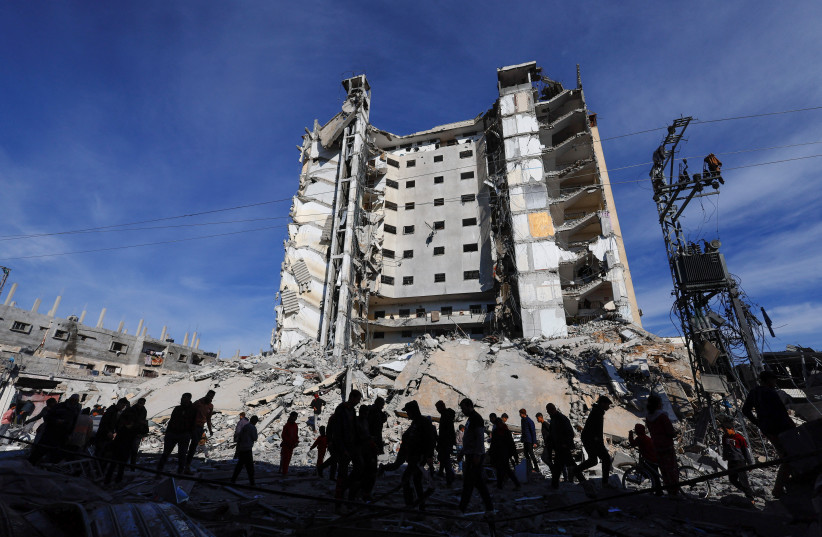Several employees at Google have resigned or been fired amid an internal campaign against the company’s contract work for Israel, amid allegations that the IDF is committing war crimes in Gaza and that the tech giant is complicit in lending its AI technology to the state.
The video that circulated on social media last month showed two young Google employees disrupting a New York City conference on the Israeli tech industry, shouting, “No tech for apartheid!” as security escorted them out of the room.
A report in TIME this week identified one of the protesters as Eddie Hatfield, a 23-year old software engineer, and confirmed that Google had fired Hatfield over the stunt shortly thereafter.
Hatfield is part of a group called No Tech for Apartheid, which claims about 200 members from within Google’s ranks and accuses both Google and Amazon of “fueling the genocidal assault on Gaza.” The group is demanding the tech companies terminate their contracts for Project Nimbus, an undertaking announced in 2022 to set up regional data centers in Israel.
The deal, which was signed by the Finance Ministry, “is for workloads running on [Google’s] commercial platform by Israeli government ministries such as finance, healthcare, transportation, and education,” according to a Google spokesperson quoted in the TIME article. “Our work is not directed at highly sensitive or classified military workloads relevant to weapons or intelligence services.”

Attention comes amid scrutiny of IDF's use of AI
The article also notes that “There is no evidence Google or Amazon’s technology has been used in killings of civilians.” But the protest, it says, “is as much about what the public doesn’t know about Project Nimbus as what it does.” The servers in question are not accessible to Google, for what one research engineer quoted in the article called “understandable privacy reasons.”
“But then what assurance do we have that customers aren’t abusing this technology for military purposes?” she asked.
The No Tech for Apartheid campaign is several years old, but the renewed attention comes amid increased scrutiny on the role played by artificial intelligence (AI) programs in Israel’s war against Hamas in Gaza.
A widely circulated report earlier this month in +972 Magazine alleged that the IDF “almost completely relied” on an AI-based program called “Lavender,” “designed to mark all suspected operatives in the military wings of Hamas and Palestinian Islamic Jihad (PIJ), including low-ranking ones, as potential bombing targets,” and that soldiers who authorized such strikes functioned largely as “rubber stamps.”
The IDF rejected allegations that it bombed targets based solely on an AI program, saying that automated data systems were used to suggest targets from a database but that all strikes require authorization. The IDF also rejected claims in the same report that as many as 100 civilian deaths were signed off on as collateral damage to target certain senior commanders.
